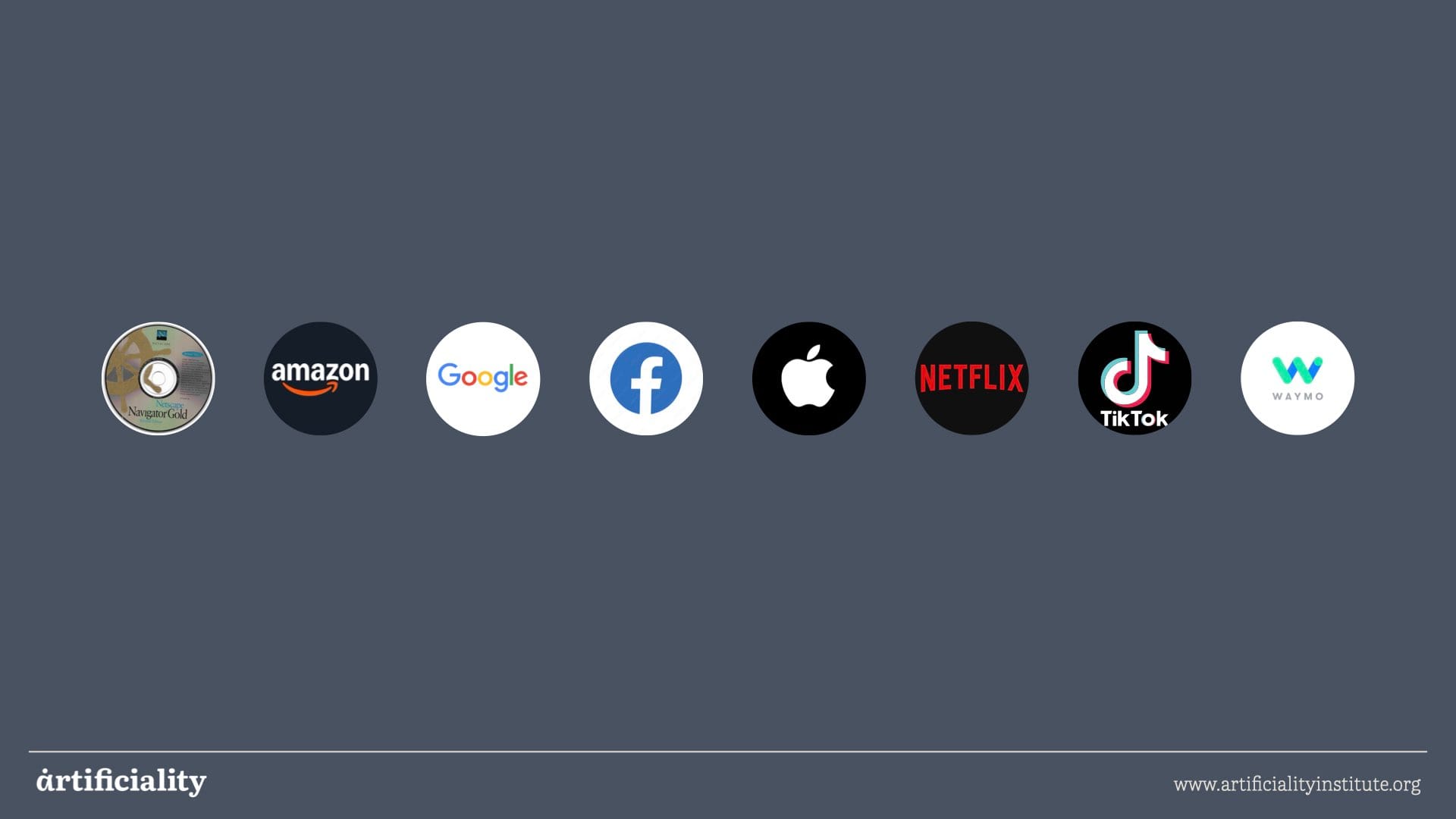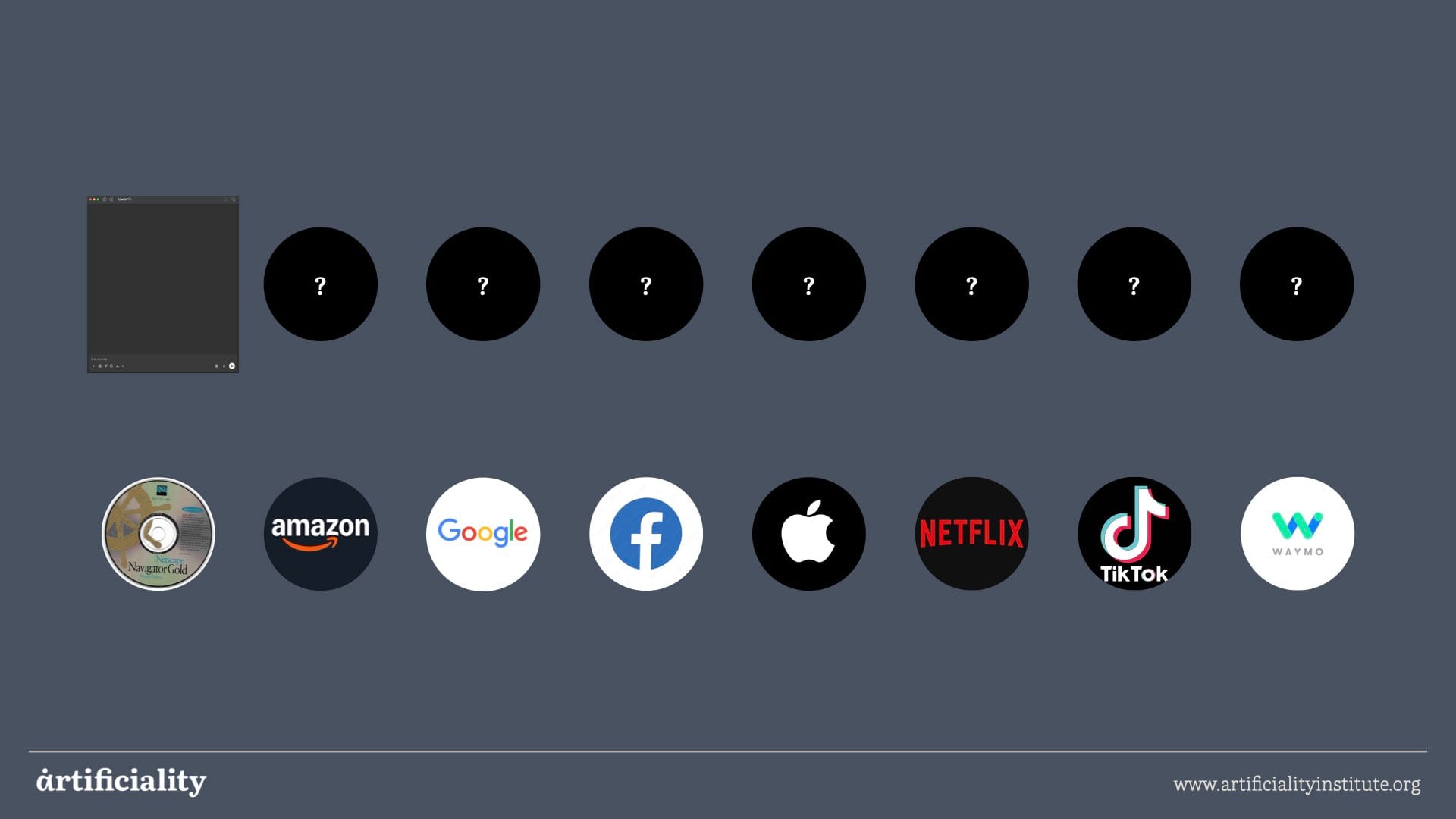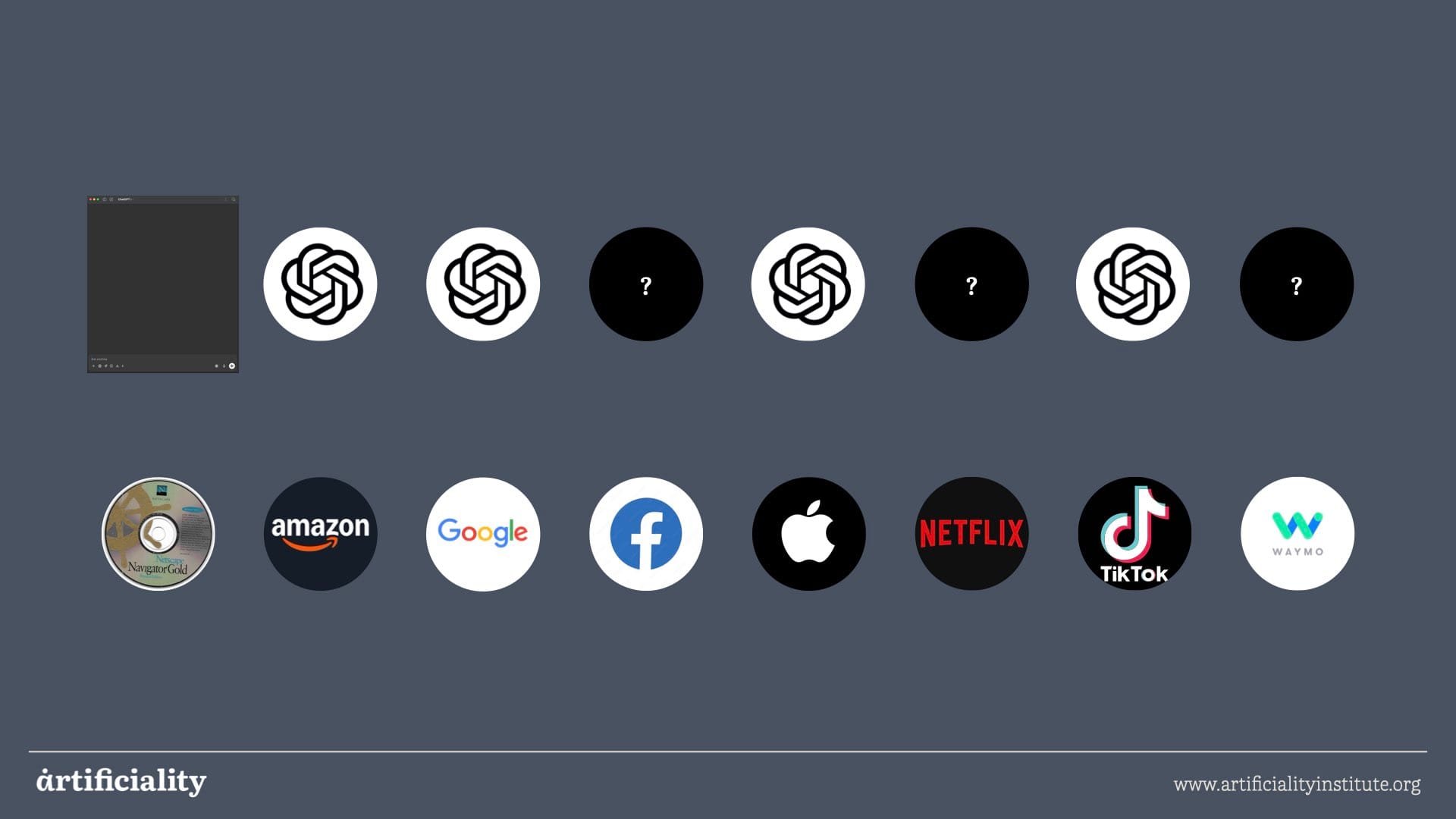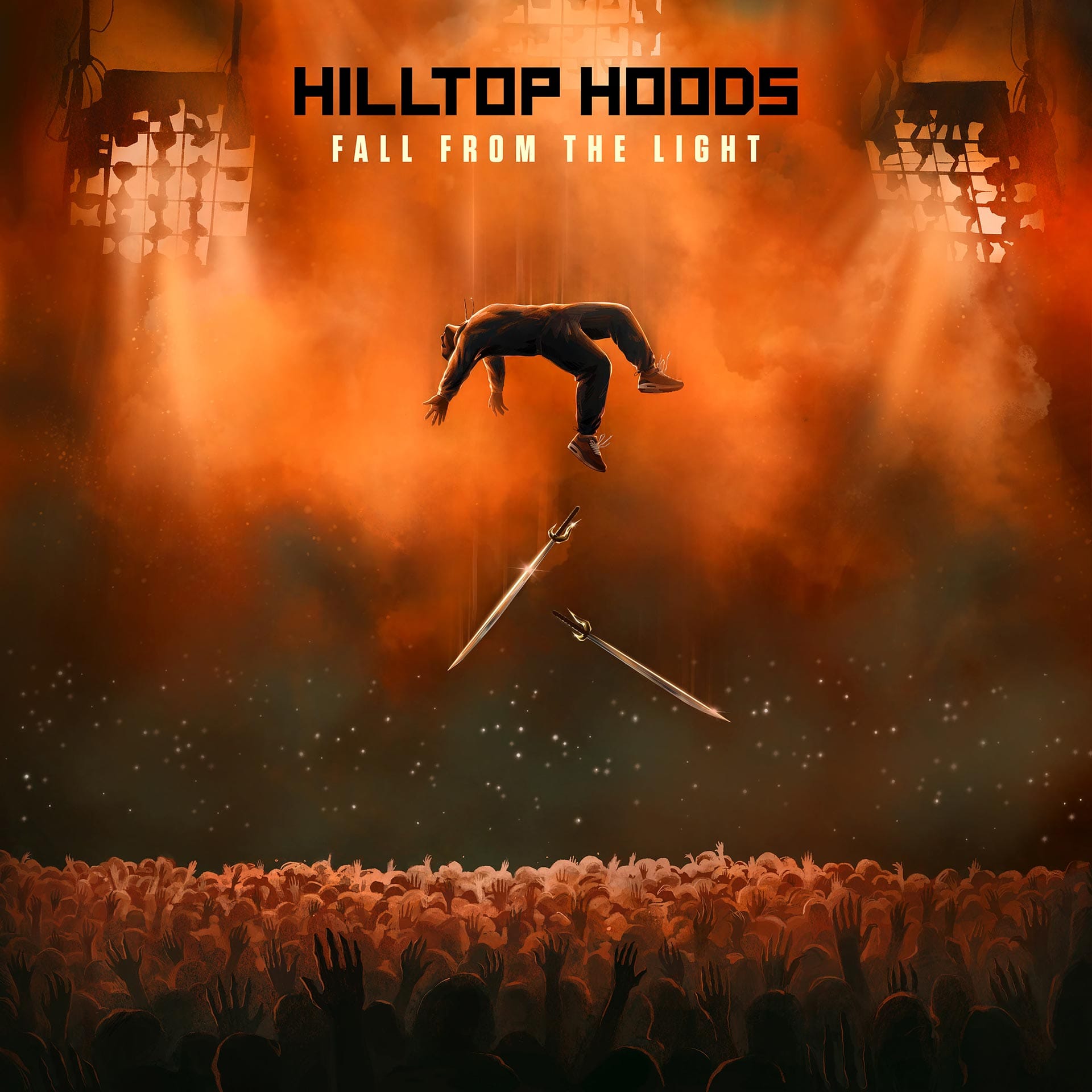Bubbles | On Unpredictability and the Work of being Human | Something Entertaining
In This Issue: * Bubbles. Are We? Aren't We? Read more below for my current take... * On Unpredictability and

A Reminder: Our current newsletter format includes a full essay as well as links to other essays, podcasts, etc. So remember to scroll down to see the other links. This is particularly important in this issue as Helen's essay on AI & Culture is a 'dont' miss.' And, given I get to see the drafts in queue, I can tell you that this is the first of four essays and you'll want to read all of them.
So get scrolling & clicking!
And...we're thrilled to announce that De Kai will be joining us at the Artificiality Summit! Scroll down to access our podcast conversation with him about his recent book, Raising AI. We're excited to talk with him in person. Join us and you can too!
In April 2023, we introduced ‘aiOS,’ our frame for foundation models aka LLMs. We proposed that LLMs would provide a new platform for developers to create applications. This would provide opportunities for developers to access expensive and powerful AI capabilities without creating the underlying functionality themselves—analogous to traditional OS services. This would also provide potential for the model developers to create an OS ecosystem like that of Apple, Google, and Microsoft.
This week, it feels that OpenAI passed a threshold for creating a new OS.
Over the past year, OpenAI added functionality to ChatGPT to replace other internet services: starting with search in October 2024 and more recently commerce and a Tiktok-style video-based social network. This has generated well-founded questions about the dominance of current internet companies. This week, however, with the launch of app support within ChatGPT, OpenAI is threatening the dominance of OS companies.

In our keynotes, we frame the current state of AI in reference to previous platform technologies. For instance, we’ll describe current AI applications as analogous to Netscape Navigator: the ‘first step’ technology that opened opportunities for future technologies like e-commerce, search, social media, mobile apps, streaming, social video, and self-driving cars. We say that it can be difficult to see the future. For instance, how many people saw early maps on the internet and thought that not only would maps tell us where to drive but that maps would someday drive the cars themselves?
We share this historical reference to ask the question: if ChatGPT is analogous to Navigator, what might follow?

Today, one answer appears to be: more OpenAI. Of the seven illustrative examples of internet innovations that followed Navigator, OpenAI has introduced replacements for four: search, commerce, social video, and apps. Introducing the first three—search, commerce, and social—replicates the strategy of other internet companies like Google and Meta. But, to me, introducing apps is something more fundamental.

When we launched Intelligentsia in 2015, we predicted that the AI era would create the next prompt war. Riffing on work by John Markoff, we described how Microsoft won the PC era with the c:/, Google won the internet era with the search prompt, and Apple won the mobile era with the pinch-and-zoom prompt. We proposed that the access to AI would create the next tech giant. (Note: we didn’t predict the function would be called ‘prompting,’ that was just a lucky coincidence.)
It is striking that OpenAI and Anthropic are showing the possibility for LLMs to abstract all three previous prompt winners:
The last one is perhaps the most important. Not only is ChatGPT attempting to abstract the OS by providing direct access to apps, it has the power to select the apps that are offered. Given the limited throughput of chat, will we ever look past the first few options that ChatGPT offers? And, if not, how much power will OpenAI have to select the winners of the future? Will the AI chat prompt create the ultimate gatekeeper of the digital world?
I do not dismiss the entrenched trust and entanglement of current OS providers. These players have built trust over decades and have crafted ecosystems that are difficult to depart. But history shows us that previous prompt winners—from desktop to internet to mobile—don’t necessarily win the next prompt war.
Read this. I'm always a fan of Helen's writing but this is one not to miss. Especially because it's the first of three on a theme of AI & culture.
This is an essay about how your personal choices about AI us, multiplied across millions of people, become evolutionary forces. It explores how AI and humanity are evolving together through culture rather than genetics, and why individual choices about AI use matter more than we might think.
The core idea is that culture now drives human evolution faster than genes, and since AI is a cultural technology, human-AI coevolution is already happening. Because this operates at cultural speed (years and decades, not millennia), personal decisions about how we use AI rapidly scale up to shape our collective future.
In this conversation, we explore how humans can better navigate the AI era with De Kai, pioneering researcher who built the web's first machine translation systems and whose work spawned Google Translate. Drawing on four decades of AI research experience, De Kai offers a different framework for understanding our relationship with artificial intelligence—moving beyond outdated metaphors toward more constructive approaches.
De Kai's perspective was shaped by observing how AI technologies are being deployed in ways that increase rather than decrease human understanding. While AI has tremendous potential to help people communicate across cultural and linguistic differences—as his translation work demonstrated—current implementations often amplify polarization and misunderstanding instead.
And, yes, De Kai will be speaking at the Artificiality Summit!
In this conversation, we explore the challenges of building more inclusive AI systems with John Pasmore, founder and CEO of Latimer AI and advisor to the Artificiality Institute. Latimer represents a fundamentally different approach to large language models—one built from the ground up to address the systematic gaps in how AI systems represent Black and Brown cultures, histories, and perspectives that have been largely absent from mainstream training data.
John brings a practical founder's perspective to questions that often remain abstract in AI discourse. With over 400 educational institutions now using Latimer, he's witnessing firsthand how students, faculty, and administrators are navigating the integration of AI into learning—from universities licensing 40+ different LLMs to schools still grappling with whether AI represents a cheating risk or a pedagogical opportunity.
And, yes, John will be speaking at the Artificiality Summit!
Watch/Listen...
Helen says she's behind on her book reviews—but she's been reading. Trust me, that's quite true.
As she writes:
"I’ve followed his work for a while. This one is about the state of our collective imagination. He makes the point that we’ve become very good at picturing collapse and very poor at picturing renewal. We can describe the future of technology in detail, but struggle to imagine what democracy, care, or learning might look like if they actually worked better.
Having Sir Geoff join us in Bend in less than two weeks feels like a small milestone — the Artificiality Institute growing up enough to bring our first international speaker. It's exactly the kind of conversation we hoped to make possible."
We're excited to talk with Sir Geoff about his work. Join us at the Artificiality Summit so you can too!
We're trying something new which is to simply share some form of entertainment that's captured our attention.

This week, my share is Fall from the Light, the new album from Hilltop Hoods. Like most Americans, I likely wouldn't know about this band if I wasn't married to someone from New Zealand. Hilltop is from Adelaide, Australia and embodies what I want from hip hop: innovative, genre-busting, lyrical, vulnerable, and opinionated. If you can, find their 2005 album, The Hard Road: Restrung. Recorded with the Adelaide Symphony, I think it's one of the best fusion albums of all time.
It's fair to say that Hilltop's peak may have been State of the Art (2009) or Drinking from the Sun (2012). Fall from the Light fuses more with pop than in the past and some hardline expands on their fusion hip hop with more sophisticated song-writing and production. And, yes, they are still as opinionated as ever. Don't miss Don't Happy, Be Worry if you want to hear a songwriter's anger at the state of the world.
I thrashed this album since it first came out. And, then, last week I got to listen to it in their home country as we traveled in Perth and Brisbane. Maybe it was just in my head but their music meant even more to me there.